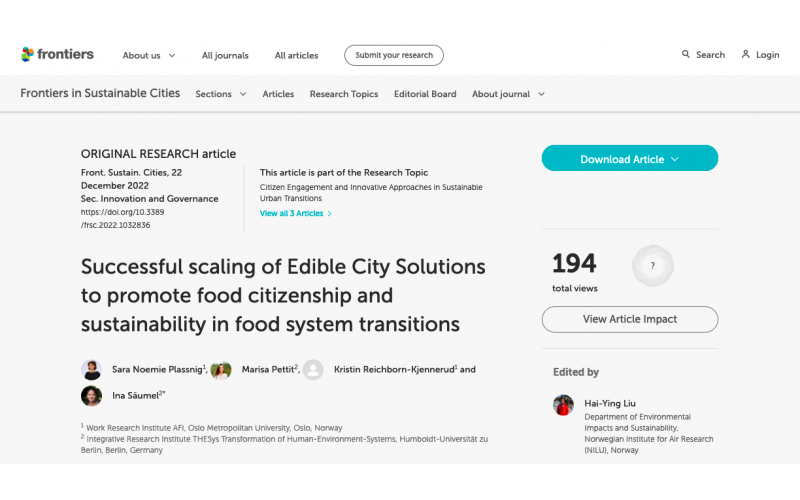Sustainable, productive and biodiversity-friendly urban landscapes are a strategic step in transitioning to future-proof, liveable and healthy cities Edible nature-based solutions, otherwise known as “Edible City Solutions”, comprise a wide range of different forms of sustainable urban food production, distribution and consumption which use innovative principles of ecological design combined with closed material and energy flows. Edible City Solutions contribute to a local green economy, reduce cities' overall ecological footprint, enhance social cohesion, human health and wellbeing and contribute to bridging the gap between “farm and fork”. These benefits have been tested and monitored in Living Labs where a wide portfolio of different solutions have been implemented and scaled in order to accelerate their uptake and use in urban landscapes. The study documents and analyses different scaling practices and activities of the co-created Living Labs – together with local actors within the “scaling community” in Andernach, Berlin, Havanna, Oslo and Rotterdam. We follow a mixed method approach and analyse data by applying the different scaling pathways of scaling up, scaling deep, scaling wide, scaling across and scaling soft previously identified through a systematic literature review. Results are presented as ongoing scaling stories, experiences and challenges in the Living Labs. The study also highlights examples of scaling practices beyond the Living Labs and suggests strategic plans for future scaling. Scaling processes, strategies and approaches are critically reviewed and discussed. Observations are condensed into eleven recommendations for scaling edible nature-based solutions.

